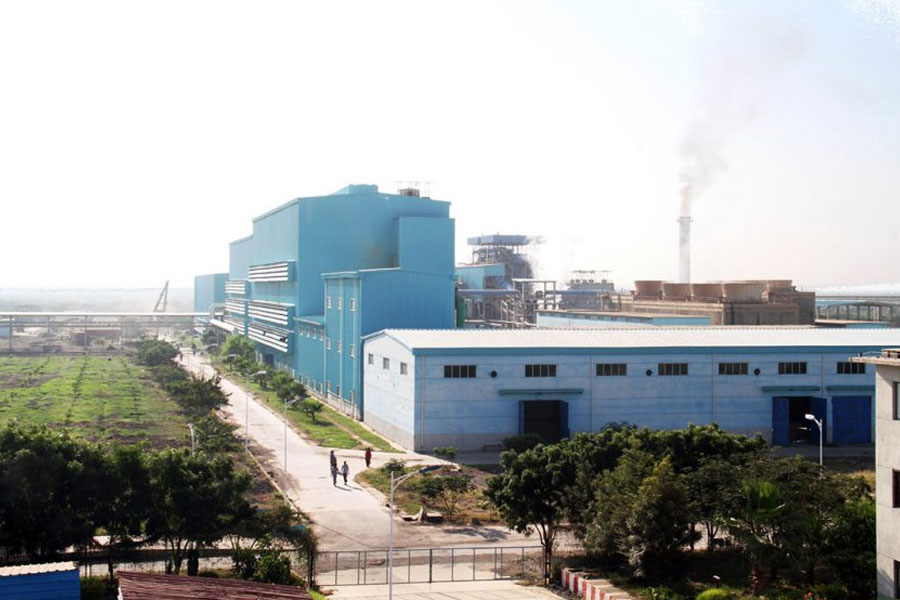
News Analysis | Jun 29,2019
Jun 27 , 2020
By GELILA SAMUEL ( FORTUNE STAFF WRITER
)
Universities and upcoming infrastructure projects, including roads and irrigation channels, will be built in the regional states based on the new draft formula proposed by nine federal public offices.
The draft formula, which was tabled to the House of Federation for approval this month, measures the technical, financial, social and environmental impacts, as well as the accessibility and political viability, of the new projects before they begin. Points are given to each project under certain parameters and graded out of 100.
The procedure will replace the existing practice of institutions approving new infrastructure projects according to their own criteria.
Ethio telecom, Ethiopian Airlines, the Irrigation Development Commission, Ethiopian Roads Authority, Ethiopian Electric Power, Ethiopian Electric Utility, the Ministry of Science & Higher Education, Ethiopian Railways Corporation, and the Industrial Park Development Corporation are the institutions that tabled their draft formula to the Budget Subsidy & Joint Revenues Standing Committee of the House.
Early this month, the Federation, having received the draft formula from the institutions, held the first hearing session to discuss the proposals from the offices. They have been developing the formula for the past year.
So far, the public offices have been approving projects using their own plans even though the law states that they need to prepare a formula to get approval from the House of Federation, according to Yakob Bekele, senior programme manager at the Forum of Federation, which is helping the House of Federation on this project.
"There were gaps in the process since the regional states highly pressured the institutions," he said, "and others haven't developed any kind of criteria."
However, two years ago, the House conducted an assessment on the standards for the allocation of development projects. After doing the assessments, the House directed the institutions to craft a formula and tabled it for approval.
The offices are expected to submit reports of newly approved projects each month to the Federation, and the House will evaluate their performances quarterly, according to the new procedure.
Before this change, public offices approved projects using their own procedures. For instance, Ethiopian Electric Power has been reviewing a feasibility study and master plan study before approving projects, according to Ashebir Balcha, CEO of Ethiopian Electric Power.
With the new proposed formula, EEP will mainly measure three parameters to approve new projects. The technical aspect, population size of the project site and other projects in the proposed project area will be measured out of 100 points.
While approving new irrigation dam projects, the Irrigation Development Commission will weight five parameters such as the political, social and environmental impact of the project on the area, the job opportunities the project will open, and the availability of water resources in the project area.
This is a progressive step from the government on the valuation of infrastructure facilities, according to Amebaw Dametew, an independent consultant on public administration for over two decades.
"But with the exception of basic facilities like roads and electricity, projects should be handled focusing on cost and feasibility," Amebaw recommended.
The House of Federation has also tabled a draft proclamation that proposes the establishment of a Commission that will regulate a fair distribution of infrastructure facilities across the regional states. The bill, "Provide a System for the Determination of the Division of Federal Subsidies & Joint Revenues," was tabled to the parliament in January.
The Commission will also oversee the subsidy budget for the regional states as well as administering the division of joint revenues. The Commission will also be in charge of the preparation of the regional state subsidy budget formula and carry out a follow-up activity on the equitable distribution of the infrastructure facilities.
Accountable to the Federation, the Commission will have a seven-member committee selected from the House of Federation, higher educational institutions and civil society institutions.
The bill will introduce a specific purpose subsidy that is a conditional transfer intended to provide incentives for the regional states to undertake specific programmes to achieve an identified objective.
“We expect the parliament to legislate the bill before the end of the fiscal year,” said Gebru Gebrselassie, communications director at the House of Federation.
For the upcoming fiscal year, the Ministry of Finance has proposed 176.4 billion Br in subsidies for the regional states. The proposed budget is 37.5pc of the total federal budget, and it is 1.1 percentage points higher than the share given in the current federal budget.
The five-year budget formula for regional subsidies also expired this fiscal year; however, the House of Federation has extended the formula for two more years due to difficulties collecting input data from the regional states, according to Gebru.
"The political insecurity in the country has contributed to the delay of the new budget formula," Gebru said.
The regional states budget subsidy formula is drafted considering the nine regional states and two city administrations. But, lately, Sidama Zone has split from the Southern Nations, Nationalities, & Peoples' Region (SNNPR) to become the 10th regional state.
“The issue of Sidama is being handled by the Office of the House of Federation. Nothing has been decided yet,” Gebru added.
PUBLISHED ON
Jun 27,2020 [ VOL
21 , NO
1052]

News Analysis | Jun 29,2019

Fortune News | May 14,2022

Radar | Jul 20,2019

Radar | Jul 21,2024

Editorial | Nov 16,2024

Fortune News | Jun 19,2021

Life Matters | Apr 24,2021

Sunday with Eden | Aug 29,2020

Radar | Apr 13,2025

Radar | Aug 18,2024

Dec 22 , 2024 . By TIZITA SHEWAFERAW
Charged with transforming colossal state-owned enterprises into modern and competitiv...

Aug 18 , 2024 . By AKSAH ITALO
Although predictable Yonas Zerihun's job in the ride-hailing service is not immune to...

Jul 28 , 2024 . By TIZITA SHEWAFERAW
Unhabitual, perhaps too many, Samuel Gebreyohannes, 38, used to occasionally enjoy a couple of beers at breakfast. However, he recently swit...

Jul 13 , 2024 . By AKSAH ITALO
Investors who rely on tractors, trucks, and field vehicles for commuting, transporting commodities, and f...

Oct 18 , 2025
The political establishment, notably the ruling party and its top brass, has become p...

Oct 11 , 2025
Ladislas Farago, a roving Associated Press (AP) correspondent, arrived in Ethiopia in...

Oct 4 , 2025
Eyob Tekalegn (PhD) had been in the Governor's chair for only weeks when, on Septembe...

Sep 27 , 2025
Four years into an experiment with “shock therapy” in education, the national moo...